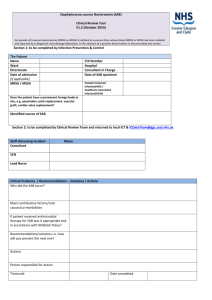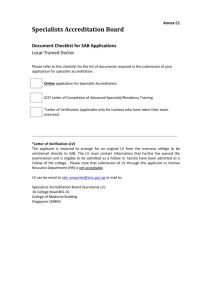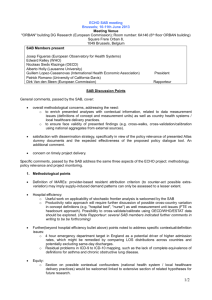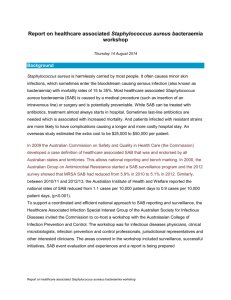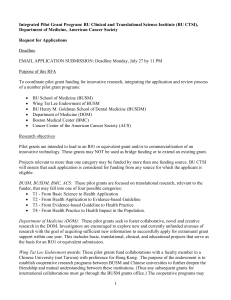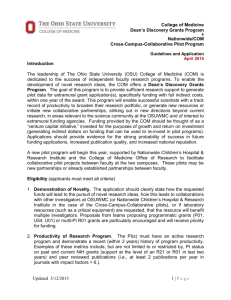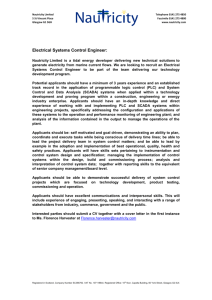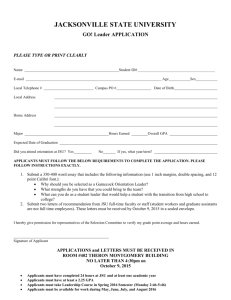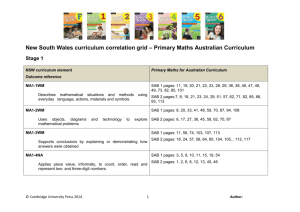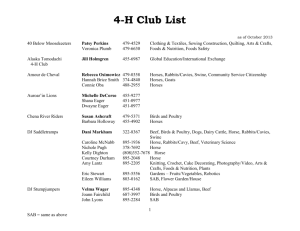National Research Fund for Tick-Borne Diseases, Inc
advertisement
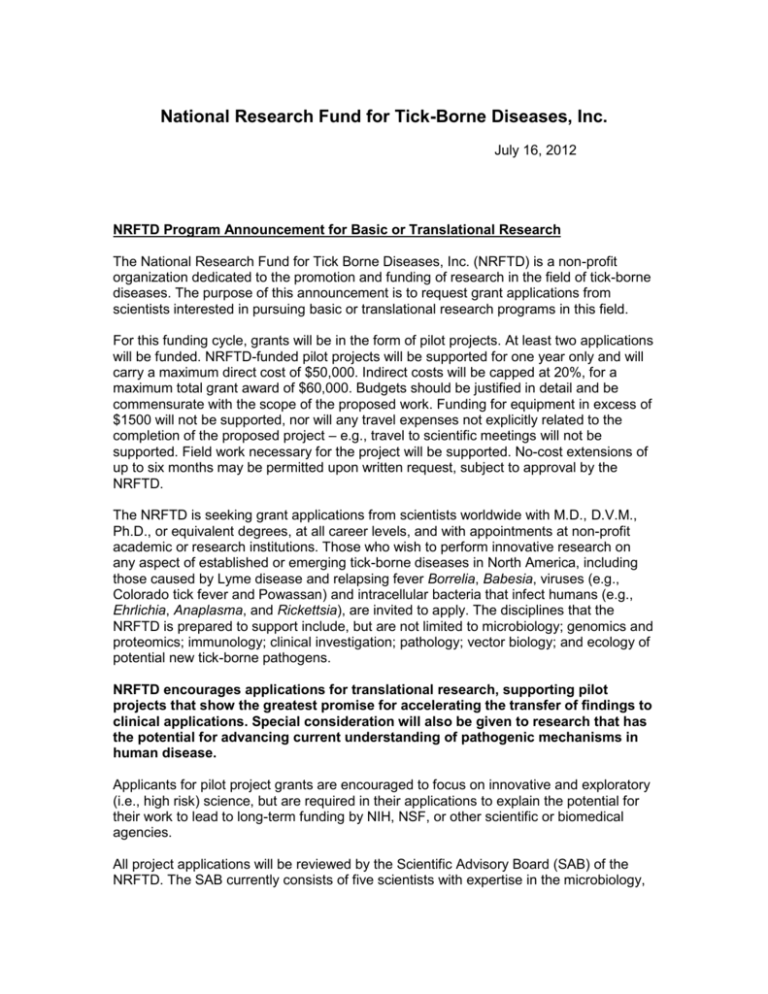
National Research Fund for Tick-Borne Diseases, Inc. July 16, 2012 NRFTD Program Announcement for Basic or Translational Research The National Research Fund for Tick Borne Diseases, Inc. (NRFTD) is a non-profit organization dedicated to the promotion and funding of research in the field of tick-borne diseases. The purpose of this announcement is to request grant applications from scientists interested in pursuing basic or translational research programs in this field. For this funding cycle, grants will be in the form of pilot projects. At least two applications will be funded. NRFTD-funded pilot projects will be supported for one year only and will carry a maximum direct cost of $50,000. Indirect costs will be capped at 20%, for a maximum total grant award of $60,000. Budgets should be justified in detail and be commensurate with the scope of the proposed work. Funding for equipment in excess of $1500 will not be supported, nor will any travel expenses not explicitly related to the completion of the proposed project – e.g., travel to scientific meetings will not be supported. Field work necessary for the project will be supported. No-cost extensions of up to six months may be permitted upon written request, subject to approval by the NRFTD. The NRFTD is seeking grant applications from scientists worldwide with M.D., D.V.M., Ph.D., or equivalent degrees, at all career levels, and with appointments at non-profit academic or research institutions. Those who wish to perform innovative research on any aspect of established or emerging tick-borne diseases in North America, including those caused by Lyme disease and relapsing fever Borrelia, Babesia, viruses (e.g., Colorado tick fever and Powassan) and intracellular bacteria that infect humans (e.g., Ehrlichia, Anaplasma, and Rickettsia), are invited to apply. The disciplines that the NRFTD is prepared to support include, but are not limited to microbiology; genomics and proteomics; immunology; clinical investigation; pathology; vector biology; and ecology of potential new tick-borne pathogens. NRFTD encourages applications for translational research, supporting pilot projects that show the greatest promise for accelerating the transfer of findings to clinical applications. Special consideration will also be given to research that has the potential for advancing current understanding of pathogenic mechanisms in human disease. Applicants for pilot project grants are encouraged to focus on innovative and exploratory (i.e., high risk) science, but are required in their applications to explain the potential for their work to lead to long-term funding by NIH, NSF, or other scientific or biomedical agencies. All project applications will be reviewed by the Scientific Advisory Board (SAB) of the NRFTD. The SAB currently consists of five scientists with expertise in the microbiology, immunopathogenesis and clinical manifestations of tick-borne diseases. SAB members may seek confidential verbal or written input from colleagues with additional relevant expertise. Grant applications and associated unpublished documents will be considered privileged communications, and confidentiality will be maintained at all times; however, abstracts of funded projects will be made available on the NRFTD website. Final award decisions will be rendered by the SAB, subject to the availability of funds as determined by the NRFTD’s Board of Directors. We are sorry, but we are unable to provide copies of the written reviews to applicants. Proposals will be reviewed and ranked by the SAB according to the following criteria: I. Overall scientific merit II. Relevance of the project objectives to the mission of the NRFTD III. Likelihood that the application will eventually evolve into projects funded by NIH or other agencies IV. Likelihood that the project will lead to clinically relevant findings V. Feasibility of completion of the project within the proposed time period Pilot project award recipients will receive the first two-thirds of grant funding at the beginning of the grant period. Grantees will be asked to submit a brief progress report 8 months into the grant period. These reports will be modeled loosely on the PHS2590 form used by the NIH, but with particular emphasis placed on reducing administrative burdens for grantees. The reports will be reviewed by the SAB for progress to date and the potential for further progress in the balance of the funding period. Funding for the final third of the grant period will be contingent upon approval of the progress report by the SAB. In certain circumstances, this requirement may be waived at the discretion of the SAB. All grantees will be required to complete a final report describing the scientific results of the research project, as well as plans for the submission of any publications or follow-up research proposals based on the findings obtained during the pilot project. Grantees are expected to acknowledge the support of the NRFTD in any publications based on the work supported by the grant. Applications must be received by September 28, 2012 at 5:00 pm EST. Announcement of awards will be made by mid-January of 2013, and grantees should be prepared to begin work on their projects in February, 2013. The application package should consist of one copy of the application (in Microsoft Word or PDF format) plus any relevant appendices (in Word or PDF format). Applications may be submitted in the following ways: 1. E-mail: Applications may be sent by e-mail to grants@nrftd.org if no single file is larger than 12 MB. (Applicants may send their application materials via multiple emails if necessary.) 2. FTP: Applicants may upload their materials to an FTP server of their choice and send an e-mail to grants@nrftd.org with instructions for retrieving the files. It is the responsibility of applicants to follow up with NRFTD to make sure all files have been successfully received. Alternatively, applicants are encouraged to use free services like YouSendIt (www.yousendit.org) or WeTransfer (www.wetransfer.com) for file transfer. 3. CD or DVD: Applicants may send a CD or DVD containing their application materials to: National Research Fund for Tick-borne Diseases, Inc. 251 Stonytown Road Manhasset, New York 11030 Attention: Catherine F. Morrissey For more information contact Cathy Morrissey: cmorrissey@nrftd.org or 800-728-7147
